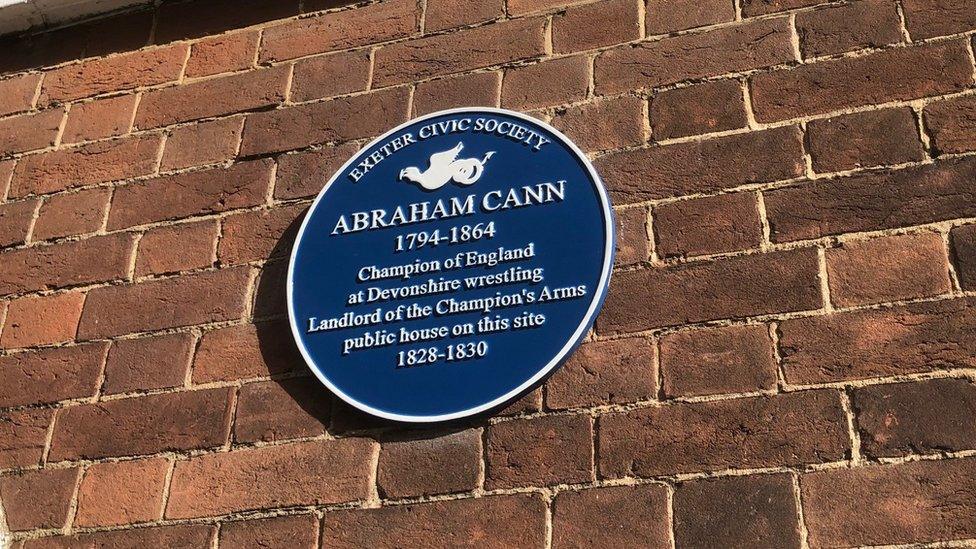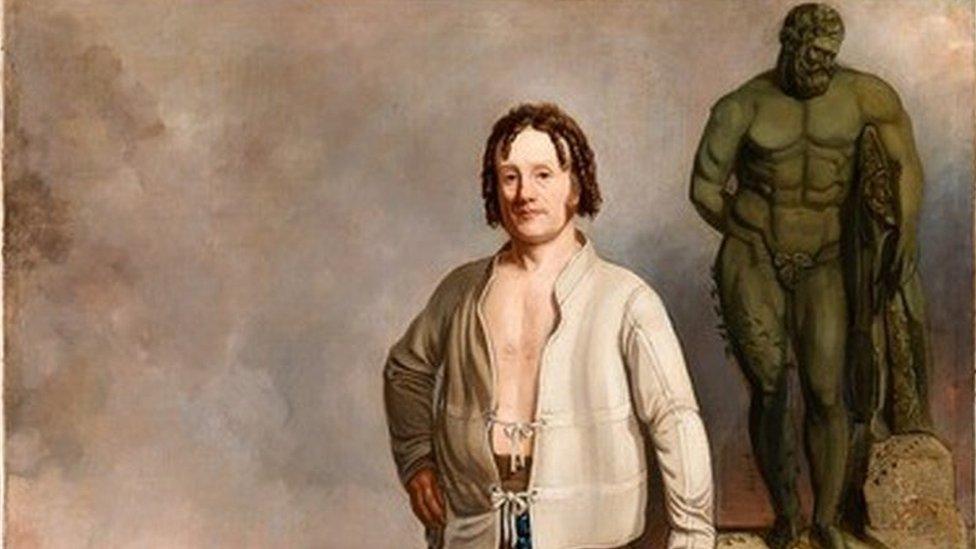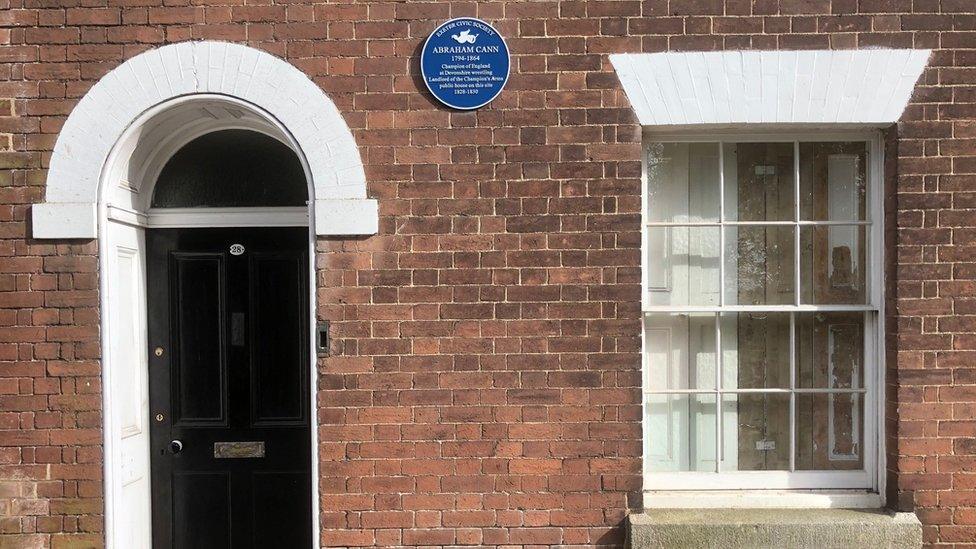Blue plaque for champion Devon wrestler Abraham Cann
- Published

The sign was unveiled at 28 Bartholomew Street West, in Exeter, on Thursday
A blue plaque to mark the legacy of a champion wrestler has been unveiled.
Abraham Cann, from Devon, was once Champion of England for Devonshire-style wrestling.
The sign was unveiled on the anniversary of his death by a descendant of the sportsman at 28 Bartholomew Street West, in Exeter.
The plaque site was previously an inn run by Mr Cann, formerly known as The Champion's Arms.
Keith Lewis, chairman of Exeter Civic Society, which was behind the unveiling, said he was "delighted" to celebrate his achievements and "inform the people of Devon about this long forgotten champion wrestler".

Abraham Cann was born in Colebrooke, near Crediton, Devon, in about 1794

Devonshire wrestling
The distinctive feature of Devonshire wrestling was that contestants were allowed to kick each other's shins.
Across the county border, the Cornish were more likely to grapple rather than kick or trip.
Some Devonshire wrestlers soaked their shoes in bulls' blood to harden them - making their kicks more effective.
Some matches attracted thousands of on-lookers and there were large prizes for victors.
St Thomas and St Sidwell districts proved popular venues in Exeter for the sport.
Sources: Royal Albert Memorial Museum and Exeter Civic Society

Mr Cann was born in Colebrooke, near Crediton, Devon, in about 1794 and joined his brothers who also took part in the sport, the society said.
The Royal Albert Memorial Museum said: "His rise to fame as the Devon champion and, ultimately, Champion of all England was impressive."

The plaque site was previously an inn run by Mr Cann, formerly known as The Champion's Arms
The society added wrestling matches were an "extremely popular form of entertainment during the 18th and 19th centuries".
Mr Cann died at Colebrooke on 7 April 1864 and a memorial stone remains in the village churchyard.

Follow BBC News South West on Twitter, external, Facebook, external and Instagram, external. Send your story ideas to spotlight@bbc.co.uk, external.